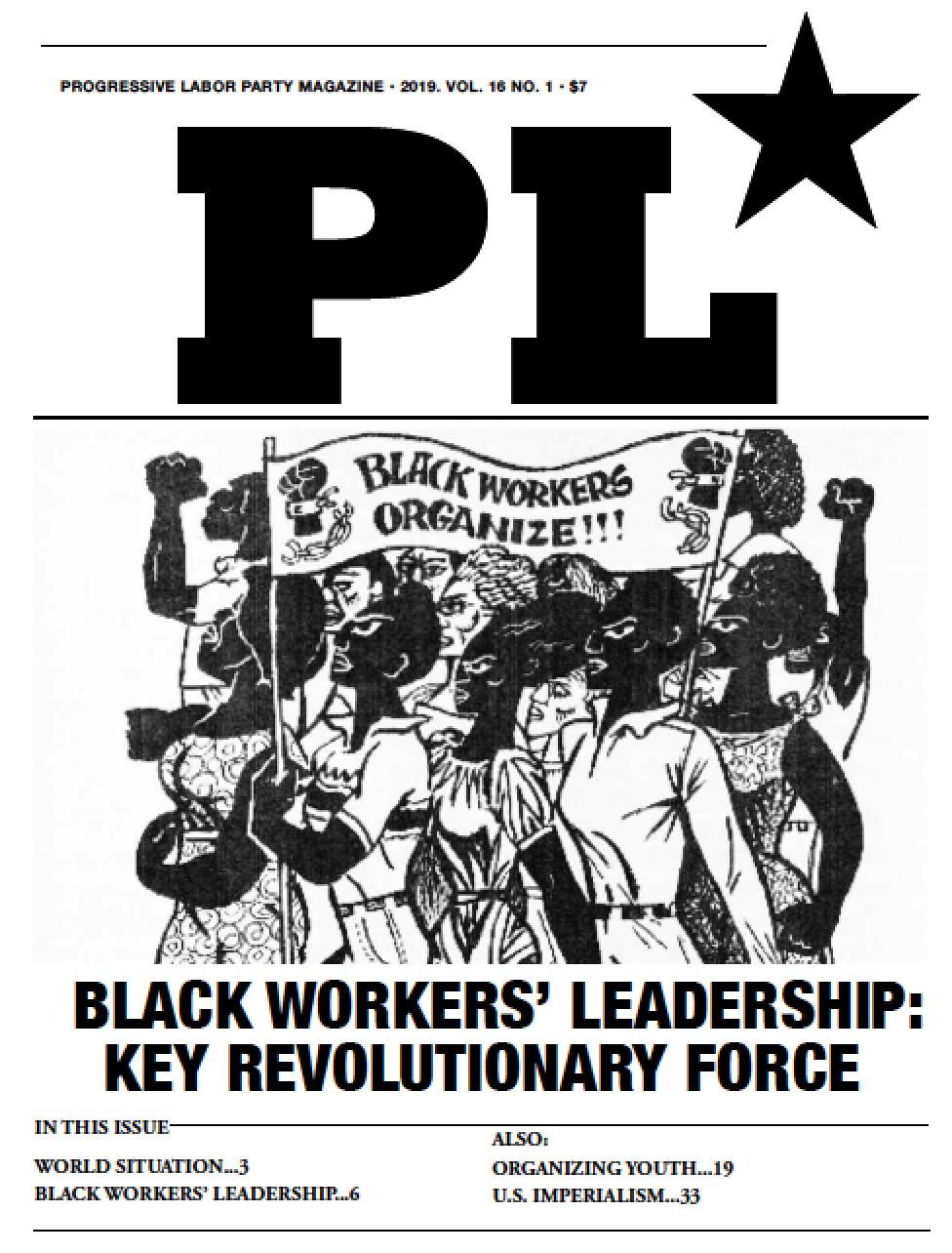Egypt’s Workers Expose ‘Non-Violent’ Lies with: MASSIVE STRIKE WAVE! Needs Mass Communist Leadership
 Wednesday, February 16, 2011 at 7:49PM
Wednesday, February 16, 2011 at 7:49PM What the rulers portrayed as a non-violent “revolution” in Egypt was far from the truth.
“It’s happening people….It’s happening….The working class has entered the arena with full force today.”
That’s how one blogger described the strike of Cairo’s transit workers as they shut six garages: Nasr Station, Fateh Station, Ter’a Station, Amiriya Station, Mezzalat Station, Sawwah Station, just days before Mubarak’s fall. That was the end of public bus service in Cairo under the hated torturer’s regime.
The strike-wave that eventually sent Mubarak packing did not fall from the sky. Since 2004, more than 2,000,000 Egyptian workers have gone on strike and protested for higher pay, especially to fight privatization.
In Mubarak’s final days, tens of thousands of workers from Cairo to Alexandria to the Suez Canal were on strike. More than 6,000 workers for the Suez Canal Authority staged a sit-down strike at the international waterway. Al Jazeera reported more than 20,000 factory workers on strike.
In Mahallah, 24,000 textile workers walked out demanding raises and in solidarity with the protesters in Tahrir Square. Striking telecommunication workers attended mass protests in Cairo’s Ramses Square. Workers struck some military equipment factories, owned by the army. Subway, postal and Egypt Airline workers walked out. Laid-off workers at the Alexandria Library demanded their jobs back. Hospital workers at the Al Azhar University hospitals walked out. Temporary and contract workers demanded permanent jobs.
These were all wildcat, “illegal” strikes, as much against the leaders of the official government-controlled Egyptian Trade Union Federation as against the bosses and Mubarak himself.
The NY Times (2/9) reported, “In Helwan, 6,000 workers at the Misr Helwan Spinning and Weaving Company went on strike….More than 2,000 workers from the Sigma pharmaceutical company in Quesna began a strike while about 5,000 unemployed youths stormed a government building in Aswan, demanding the dismissal of the governor. Postal workers protested in shifts. In Cairo, sanitation workers demonstrated outside their headquarters.”
Riot police killed five people and wounded more than 100 during protests in El Kharga, 375 miles south of Cairo. Protesters responded by burning police stations and other government buildings. In Asyut, protesters blocked a railway line. Protesters in Port Said, a city of 600,000 at the mouth of the Suez Canal, set fire to a government building when local officials ignored demands for better housing.
There are many lessons to be learned from the fall of Mubarak. One is the power of the workers to cast the deciding vote as to the direction and success or failure of any uprising or rebellion. We work among many of these same groups of workers. We are building a mass base for communist revolution.
Egypt shows that things can change very fast. It should encourage us to work harder in these very difficult times so when our opportunity comes, we will be able to fight for the leadership of the movement and lead the working class to power with communist revolution. That will not happen this time around in Egypt as Mubarak is replaced by the same butchers and torturers who have surrounded him for 30 years.JWhat the rulers portrayed as a non-violent “revolution” in Egypt was far from the truth.
“It’s happening people….It’s happening….The working class has entered the arena with full force today.”
That’s how one blogger described the strike of Cairo’s transit workers as they shut six garages: Nasr Station, Fateh Station, Ter’a Station, Amiriya Station, Mezzalat Station, Sawwah Station, just days before Mubarak’s fall. That was the end of public bus service in Cairo under the hated torturer’s regime.
The strike-wave that eventually sent Mubarak packing did not fall from the sky. Since 2004, more than 2,000,000 Egyptian workers have gone on strike and protested for higher pay, especially to fight privatization.
In Mubarak’s final days, tens of thousands of workers from Cairo to Alexandria to the Suez Canal were on strike. More than 6,000 workers for the Suez Canal Authority staged a sit-down strike at the international waterway. Al Jazeera reported more than 20,000 factory workers on strike.
In Mahallah, 24,000 textile workers walked out demanding raises and in solidarity with the protesters in Tahrir Square. Striking telecommunication workers attended mass protests in Cairo’s Ramses Square. Workers struck some military equipment factories, owned by the army. Subway, postal and Egypt Airline workers walked out. Laid-off workers at the Alexandria Library demanded their jobs back. Hospital workers at the Al Azhar University hospitals walked out. Temporary and contract workers demanded permanent jobs.
These were all wildcat, “illegal” strikes, as much against the leaders of the official government-controlled Egyptian Trade Union Federation as against the bosses and Mubarak himself.
The NY Times (2/9) reported, “In Helwan, 6,000 workers at the Misr Helwan Spinning and Weaving Company went on strike….More than 2,000 workers from the Sigma pharmaceutical company in Quesna began a strike while about 5,000 unemployed youths stormed a government building in Aswan, demanding the dismissal of the governor. Postal workers protested in shifts. In Cairo, sanitation workers demonstrated outside their headquarters.”
Riot police killed five people and wounded more than 100 during protests in El Kharga, 375 miles south of Cairo. Protesters responded by burning police stations and other government buildings. In Asyut, protesters blocked a railway line. Protesters in Port Said, a city of 600,000 at the mouth of the Suez Canal, set fire to a government building when local officials ignored demands for better housing.
There are many lessons to be learned from the fall of Mubarak. One is the power of the workers to cast the deciding vote as to the direction and success or failure of any uprising or rebellion. We work among many of these same groups of workers. We are building a mass base for communist revolution.
Egypt shows that things can change very fast. It should encourage us to work harder in these very difficult times so when our opportunity comes, we will be able to fight for the leadership of the movement and lead the working class to power with communist revolution. That will not happen this time around in Egypt as Mubarak is replaced by the same butchers and torturers who have surrounded him for 30 years.





 Progressive Labor Party (PLP) fights to destroy capitalism and the dictatorship of the capitalist class. We organize workers, soldiers and youth into a revolutionary movement for communism.
Progressive Labor Party (PLP) fights to destroy capitalism and the dictatorship of the capitalist class. We organize workers, soldiers and youth into a revolutionary movement for communism.




Reader Comments (2)
What's PLP's take on the struggle in Wisconsin? It's been going on for 2 weeks.
check out the article on our blog.
http://challengenewspaper.wordpress.com/